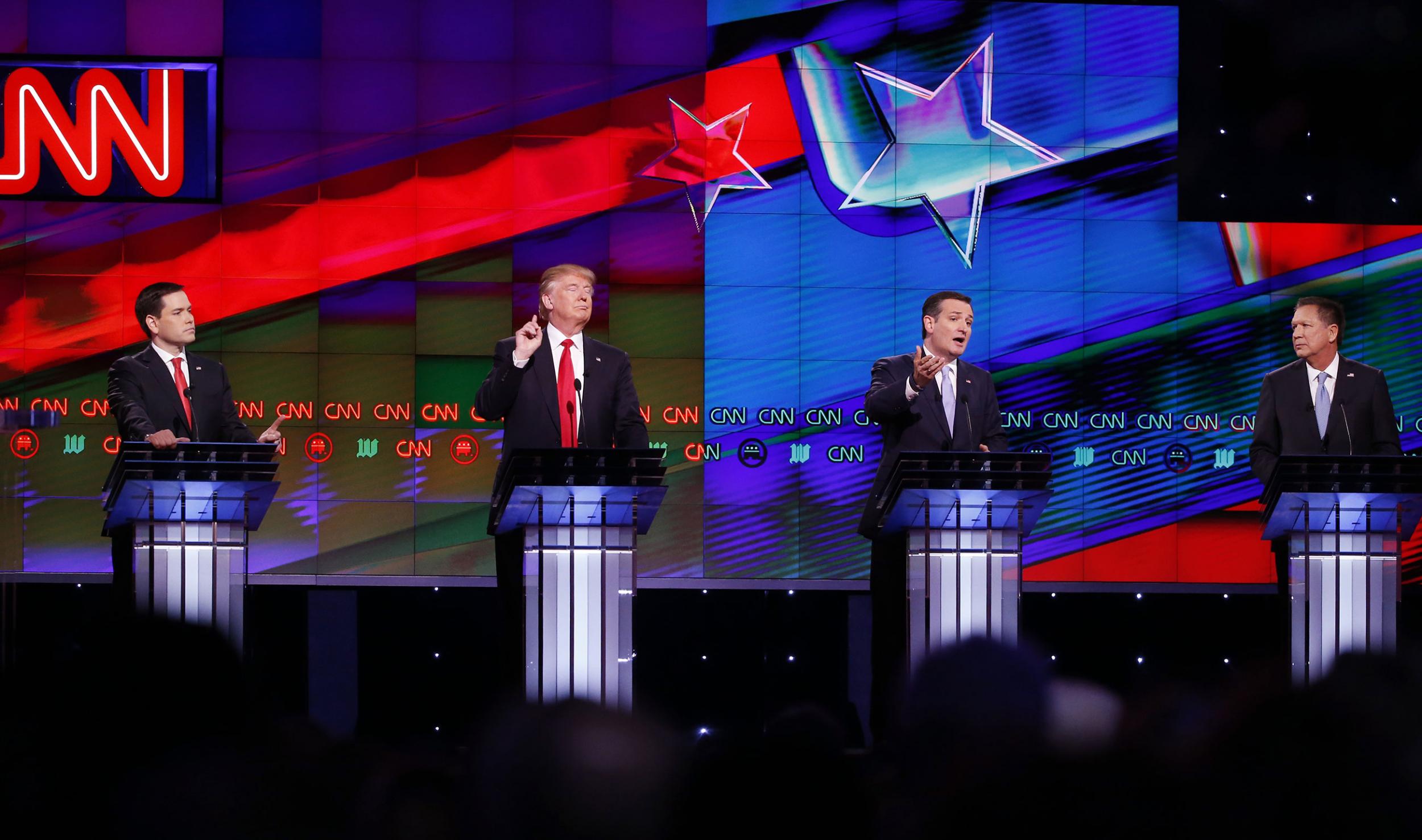The deal between Ted Cruz and John Kasich is too little too late
In a normal election year, Kasich would long since have thrown in the towel, but he's hoping to play the role of white knight


Too little, too late. Such must be the verdict on the non-aggression pact just agreed by senator Ted Cruz and governor John Kasich of Ohio, in a last-ditch bid to deny Donald Trump the 1,237 delegates he needs to clinch the Republican nomination on the first ballot at the party’s convention in Cleveland.
An arrangement of this kind between the property billionaire’s opponents might have worked early in the campaign when he was winning primaries with 30 per cent or so of the vote, thanks to a large and splintered field. But those days are long past.
Mr Trump now has a commanding delegate lead – of 845 compared to Mr Cruz's 569 at the most recent count – and that advantage will be padded further if, as widely expected, he makes a clean sweep of the five Atlantic states – Connecticut, Rhode Island, Pennsylvania,, Maryland and Delaware – that hold primaries on Tuesday.
The Kasich-Cruz deal, by contrast, covers just three states. It will give the Texas Senator a clear run in Indiana, where 57 delegates are at stake, and which votes on 3 May. The state is home to large numbers of the social conservatives and evangelical voters who favour Mr Cruz. He, meanwhile, will not seriously contest Oregon and New Mexico, where Republican voters are more moderate and would naturally lean to Mr Kasich.
Oregon however will send only 28 delegates to Cleveland, and New Mexico even fewer, while the pact does not cover the two other major states left to vote: New Jersey and, above all, California, with its prize of 172 delegates. In both, polls currently give Mr Trump a comfortable lead.
In a normal year, Mr Kasich would long since have thrown in the towel. He has no mathematical chance of winning and has won but a single state, his own. He may have his eye on the vice-presidential slot on an eventual Republican ticket – Ohio is the quintessential swing state and in 2016 will again be a vital electoral-college prize.
But his public reason for fighting on is because opinion polls consistently show he is he only Republican who beats Hillary Clinton in a White House match up. Mr Trump would lose by a landslide. Mr Cruz – widely disliked by his colleagues – does scarcely better. Thus, Mr Kasich nourishes the hope that Mr Trump will fail to reach the magic number of 1,237 and that an open convention will turn in extremis to a white knight (such as himself) to end the deadlock.
But that scenario looks increasingly improbable.
The most obvious white knight, House Speaker Paul Ryan, has unequivocally ruled himself out of contention. More important, ordinary Republicans – and not only supporters of Mr Trump – believe that a candidate who arrives in Cleveland with a solid lead should not be denied the prize by backstage machinations.
Despite the Kasich-Cruz deal, Mr Trump is likely to be within touching distance of the 1,237 delegates he needs. To thwart him at that point would cause uproar, or worse. In other words, it’s too late and too little.
Join our commenting forum
Join thought-provoking conversations, follow other Independent readers and see their replies
Comments
Bookmark popover
Removed from bookmarks